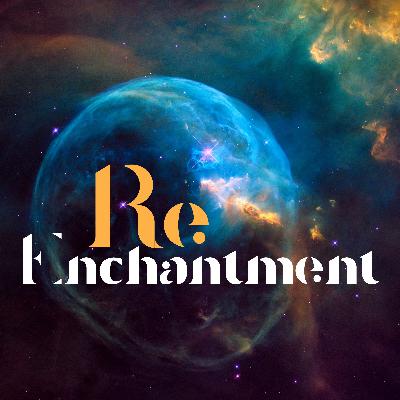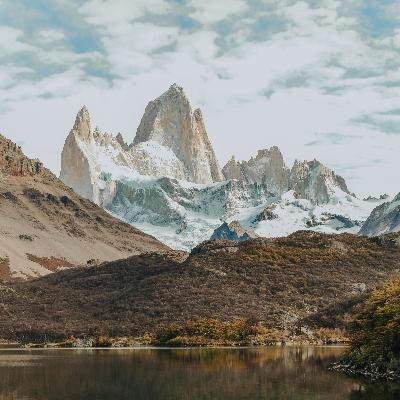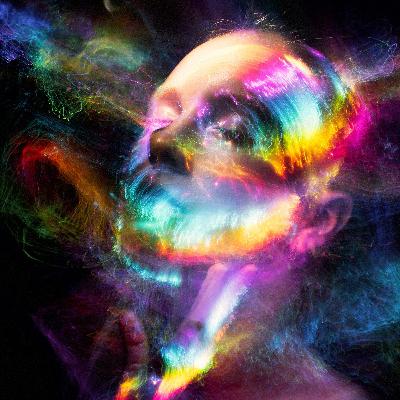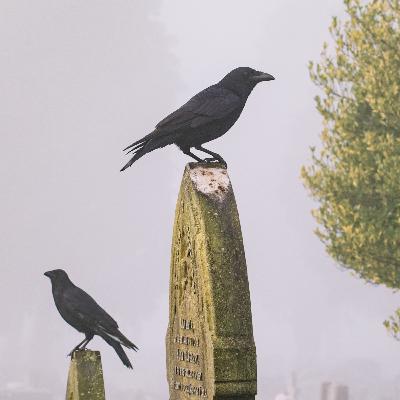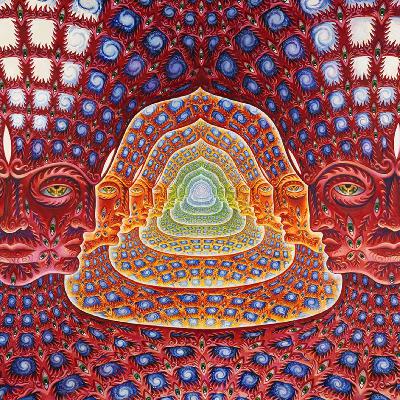Discover Re-Enchantment
Re-Enchantment

Re-Enchantment
Author: Daniel Lev Shkolnik
Subscribed: 8Played: 144Subscribe
Share
© Daniel Lev Shkolnik
Description
Daniel Lev Shkolnik is a Humanist looking for deeper, more meaningful ways to live in a secular age. Each week, he dives into ancient wisdom traditions and modern psychology to find fresh ways of making sense of our place in the universe. Daniel talks with thought leaders, both secular and religious, about how to forge meaning in the 21st century. He honestly explores complex questions about belief and science and gives listeners life-affirming tools and thought-provoking ideas to help them find wonder in a secular age. New episodes on Wednesday mornings.
53 Episodes
Reverse
A dialogue between artist Chuck Ceraso and Daniel Lev Shkolnik on the nature of spiritual awakening and consciousness.
Chuck had an awakening experience in college which for a time destabilized his life. Afterward, he began his path to return to that state of awareness and discovered that his practice of painting was no different than his spiritual practice.
Now, when he teaches others to paint, he not only teaches the craft but how to perceive the world from that state of open, concept-less awareness.
"I paint not to reproduce a scene or subject as a picture, but to plunge more deeply into my experience of the world and to bring forth a painting that is alive with visual truth and Presence. For me, painting is an ongoing contemplation on the mystery and magic of life. I continue to learn that a profound humility is required for this endeavor and that the more I paint, the less I know. I approach each painting as if I’ve never before seen that which sits before my eyes. I have learned that the world is a visual feast that can never be fully digested, and in that, offers unending revelation and profound inspiration." — Chuck Ceraso
The 1-hour dialogue was followed by an open discussion with the audience.
To hear about future dialogues like this one, subscribe to my Substack: stableawakening.substack.com
Daniel speaks with Eliot Red about his transition from the rationalist movement to a broader way of looking at reality and what prompted him to make that shift.
Crossbones Cemetery sits in the heart of London, and thanks to two decades of activism, John Constable has helped transform this outcast's burial ground into a protected sacred space.
Memoria Symposium - https://youtu.be/PXFlNnTxW3E
How does the faith, fanaticism, and utopic vision surrounding crypto-currencies mirror age-old patterns of religious fervor and salvation? Daniel talks with Devin Singh, an associate professor of religious studies at Dartmouth and author of "Divine Currency: The Theological Power of Money in the West."
Yannick Jacob is an existential coach. He talks about how to apply this 20th century philosophy in a practical way to help us find a greater sense of meaning and purpose in our lives.
Paul Bulencea speaks about creating the College of Extraordinary Experiences—an immersive, Harry-Potter-style conference around experience design. But even more interesting than his work with the College is his work with nature. He reaches a level of connection with the natural world that is astoundingly intimate and deeply profound.
Think and Grow Rich was a seminal book of American success and self-help literature that Napoleon Hill wrote in the wake of the Great Depression to help Americans pick up and start their lives over. I discuss the book and its ideas with Mitch Horowitz and what role it can play in peoples' lives as they strive to recover from the COVID pandemic.
Daniel speaks with Professor David Potter about his new book which looks at five periods of major historical change to better understand when and where the next big change might come from.
What does it take to free-climb El Capitan? What does it take to survive a Vietnamese POW camp? How do seemingly regular people rise above and beyond to achieve seemingly impossible things? In this episode, I explore some of the psychology of setting fantastically audacious goals—and achieving them.
Our brains have a difficult time subtracting. It's often easier for a doctor to add a medication than figure out which to take away. It can take less brain power to rent another storage unit than sort and throw out old stuff. Yet research shows that subtraction can be key to finding the optimal solutions to problems. Professor Leidy Klotz joins Daniel Lev Shkolnik on Re-Enchantment to share a positive take on subtraction.
We used to sit around fires and tell epic stories of mythic heroes. Today, our most widespread epics play out on our glowing screens. It's no surprise that when we try to find heroes and ethical role models to emulate, sometimes the first person that comes to mind is a fictional one. Whether it's the noble Jedi knights defending the Republic, wise Gandalf fighting for Middle Earth, or Patrick Stewart bringing diplomacy to the farthest reaches of the galaxy, these fictional figures play an important role in our mental and moral lives.
~
Join me on Zoom this Sunday Aug 15 at 1pm for a live recording and follow-up discussion of the next episode: "How to do Impossible Things."
Zoom link: https://us04web.zoom.us/j/8530544549?pwd=SXppL2M0RytMcXVOWjBleVN3Y0hUdz09
Yes, there is an answer. No, it's not 42.
~
If you’re interested in more go do my website daniellevshkolnik.com where you’ll find more of my writing and ideas, as well as info about how to work with me one-on-one.
Why is it that we idolize heroes, but when we want to be a hero ourselves it can feel immature or grandiose? In this episode, I breaks down six components of mature heroism and what differentiates it from immature heroism.
~
And go check out the new website at: reenchant.life
Despite our access to information (or because of it?) bad ideas spread faster than ever. Andy Norman's new book, Mental Immunity, seeks to give readers tools to strengthen their mental immunity so they're less likely to become unwitting hosts to self-perpetuating and potentially harmful ideas.
Buy Mental Immunity and help support the how by going to - https://bookshop.org/shop/reenchantment
And check out Andy's new nonprofit dedicated to cognitive immunology -
https://cognitiveimmunology.net/
This episode is about the difference between Jewish Kabbalah and the hermetic Kabbalah. Daniel and Mike talk about why this difference matters and how can understanding these relatively obscure traditions show us how to create rich ways of interpreting—and re-interpreting—our world.
A bonus episode where we get into all our favorite aspects of the Jewish and hermetic Kabbalahs we didn't have time to talk about in the main episode.
Religious traditions often promise the immortality of the soul. More recently, technology has been promising the immortality of the mind. But some philosophers believe that immortality isn't all it's cracked up to be. Specifically, they argue that if nothing can be lost, then nothing really matters. They say it's our finitude—not our immortality—that makes life worth living. Mike Myers and Daniel Shkolnik delve into what immortality might be like and whether it's something worth wanting.
Mike Myers is back on again. We kick off the episode with words from Maynard James Keenan, the lead sing of Tool: "If you don't believe in magic on some level, your art probably sucks." It's a bold claim, but it speaks to the intersection (and equivalence?) of art and magic. And listen to Mike's new album on Spotify by searching "Cracks in the Real" or by following this link: https://open.spotify.com/album/7zQyJitKz7WRtSLUr6PCA3?si=EKCVOcbFSnekJ3UUKBAjCg
Jeffery Kripal is a religious studies professor at Rice University and he studies everything from UFO encounters to Tantra to Christian homoeroticism. I deeply enjoyed reading his ideas in his book "Secret Body"—a book about all his other books.
Ezra Bookman, ritual designer and founder of Ritualist, talks about his view on the seven components of ritual and the ethics of creating ritual spaces in corporate settings.
~
Read more about the cult-like culture of WeWork:
https://www.vanityfair.com/news/2019/11/inside-the-fall-of-wework
Read more about the demise of SoulCycle:
https://www.vox.com/the-goods/22195549/soulcycle-decline-reopening-bullying-bike-explained


